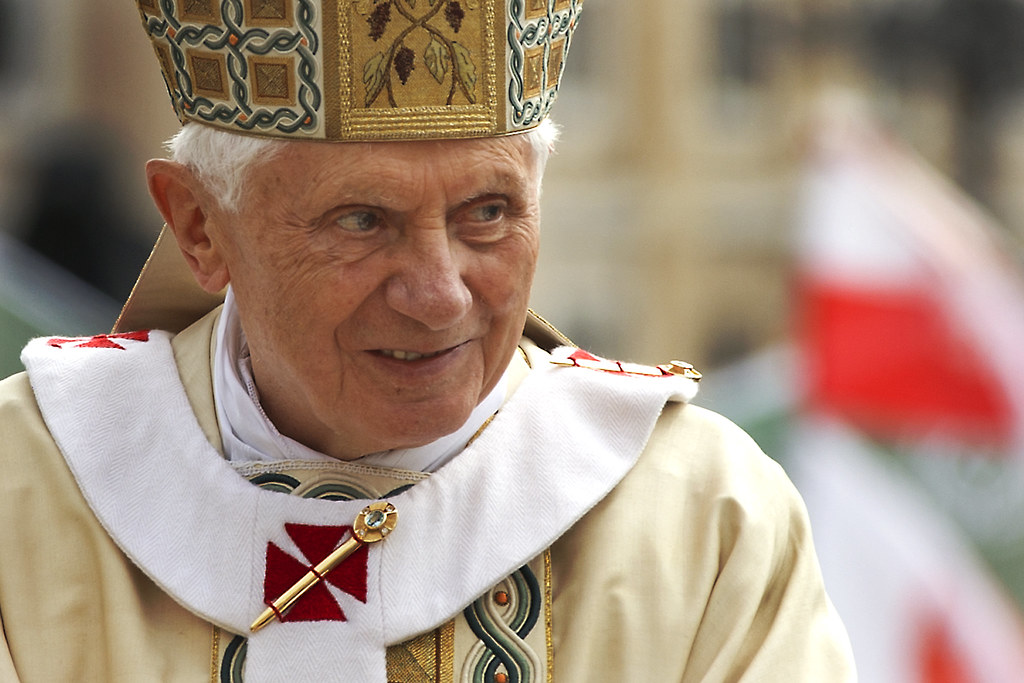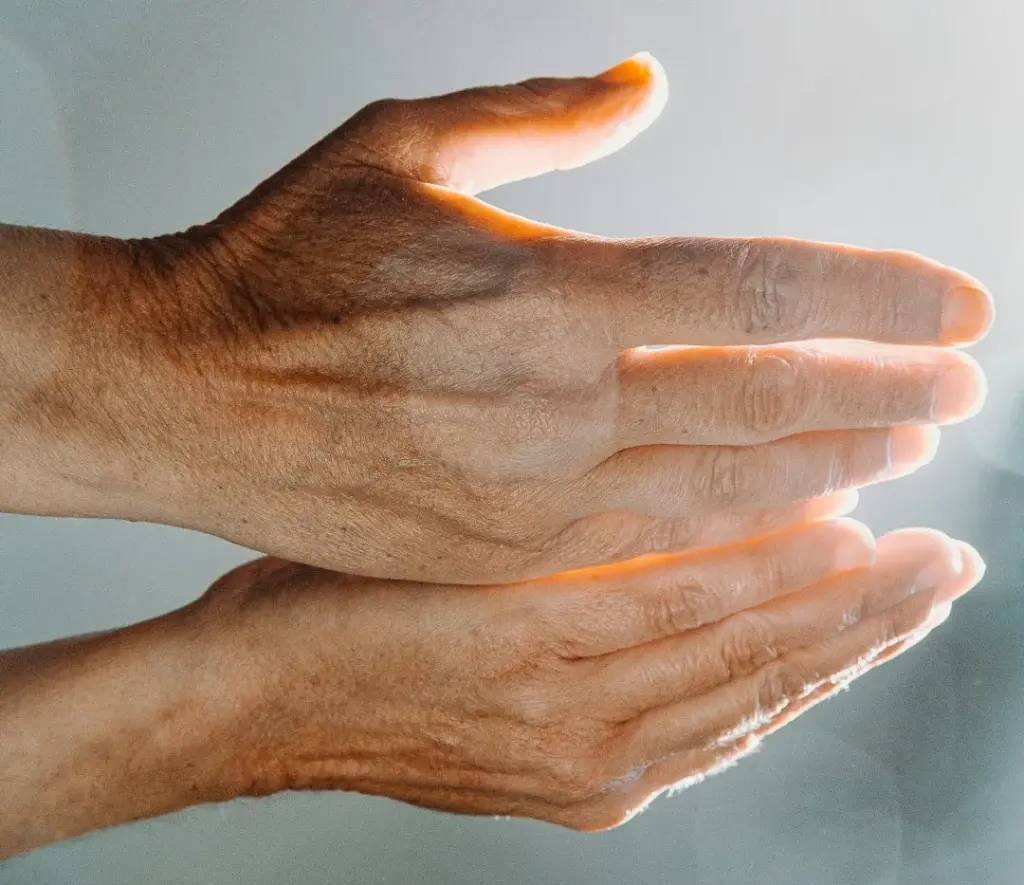In the gospel of Matthew, a lawyer approaches the Lord Jesus and puts a question to him:
‘Teacher, which commandment in the law is the greatest?’ He said to him, ‘ “You shall love the Lord your God with all your heart, and with all your soul, and with all your mind.” This is the greatest and first commandment. And a second is like it: “You shall love your neighbour as yourself.” On these two commandments hang all the law and the prophets’ (Mt 22:36-40)
According to Christ, and the tradition of Israel on which he draws (cf. Lev 19:18), love of neighbour is conditioned by love of self. But what does love of self, mean? In the common imagination, one who loves oneself is pictured as conceited, proud, self-absorbed; an unpleasant character who thinks themselves better than others. This is not the self-love that Christ enjoins.
Rather than an inflated image of self, self-love requires honesty. It demands seeing ourselves are we really are. To see ourselves as God sees us. Saint Francis of Assisi expresses these truths in a simple admonition:
Blessed is the servant who does not consider himself any better when he is praised and exalted by people than when he is considered worthless, simple, and looked down upon, for what a person is before God, that he is and no more.
In its immediate context, Saint Francis proposes this as an admonition to humility. Before God we have nothing to boast of – no room for pride or conceit. All is gift. Our talents are not our own. Our very being is received from our Creator. We exist in a state of absolute dependence on God. The only thing that we truly possess as our own is our sins, because it is the only thing that does not proceed from Him.

Furthermore, our status as creatures means God has no need of us – He is complete in Himself. We are not necessary. God would not be less if we never existed. But from this humble realisation, the fact that we do existis proof of the Divine Will – of His choice, His love – to bring us into existence. We exist because God wills us into being – and He does not repent of that choice.
How different this is from other philosophies of our human origins: of the Babylonian creation myths that image the emergence of humanity from chaos and violence; of ancient Indian myths of Shiva’s fashioning creation for his own delight, but who quickly tires of it and destroys it and fashions it ever anew; of the modern-day myths of evolutionary theories that picture creation emerging from the fires of evolution haphazardly by chance, without purpose or reason.
To see ourselves as God sees us it to acknowledge that we are not the result of thoughtlessness or chance. We flow from thought, from will and love. As Joseph Ratzinger once wrote:
“Only when we know that there is Someone who did not make a blind throw of the dice and that we have not come from chance but from freedom and love can we then, in our unnecessary-ness, be grateful for this freedom and know with gratitude that it is really a gift to be a human being.”[1]
He repeated these sentiments during his inauguration Mass as Pope Benedict XVI in 2005:
“We are not some casual and meaningless product of evolution. Each of us is the result of a thought of God. Each of us is willed, each of us is loved, each of us is necessary.”
Necessary? Haven’t we just asserted that the existence of none of us is necessary to God? That He has no need of us? In saying that each of us is necessary, Benedict is drawing on the fact that in creating us, God’s will – His love – is irrevocable. That He does not repent of his decision. Sacred Scripture communicates this ‘necessity’ by telling us that God breathshis breath into us (Gen 2:7). From the humility of our origins in dust, we are enlivened by God’s life-giving breath. The presence of the divine breath bestows a special dignity on the human person, different to all other living beings: a difference that cannot be eliminated or erased. We exist as a personal conception of God.
As Ratzinger writes:
“Human life stands under God’s special protection, because each human being, however wretched or exalted he or she may be, however sick or suffering, however good-for-nothing or important, whether born or unborn, whether incurably ill or radiant with health – each one bears God’s breath in himself or herself, each one is God’s image. This is the deepest reason for the inviolability of human dignity, and upon it is founded ultimately every civilization. When the human person is no longer seen as standing under God’s protection and bearing God’s breath, then the human being begins to be viewed in utilitarian fashion.”[2]
As a personal conception of God, created in His image (Gen1:27), the human person is unique among created beings, and from the beginning exists in special relationship with the Divine. While the bond between God and every other living creature is by nature generic and mediated, human beings enjoy a personal and immediate relationship with their Creator. Each is known and loved by God personally and called into communion with Him. Man is, as taught by the Fathers of Vatican II, “the only creature on earth which God willed for itself”(GS, n. 24).
This presence of the divine breath within us – this personal conception, this ‘being’ for communion with God – is precisely that reason for God’s declaration of our goodness. “And God saw everything that he had made, and behold, it was very good” (Gen 1:31). God delights in the work of His hands. He expresses Himself in His creation, especially the human person. Therefore, what God has created, and declared to be good, must not be denied. Though we are fallen in sin, God’s goodness remains. He sees it and wills to bring it forward. He does not give up on us.

Our being, therefore, is proclaimed good; as worthy of God. Our humanity is oriented towards God – created in his image, assumed by the Son in the Incarnation, destined for resurrection. And indeed, it is only from this height – our end – that we can truly love ourselves. To again quote Ratzinger:
“We do not understand man when we ask only where he comes from. We understand him only when we also ask where he can go. Only from his height is his essence really illuminated.
And only when this height is perceived does there awaken an absolute reverence for man that considers him still holy even in his humiliation. Only from there can we really learn to love the human condition in ourselves and in the other.”[3]
Accordingly, love of self flows from the realisation that we come personally from God, that He has implanted something divine within us, and that we are called to eternal communion with Him. We find our identity, our reality, our purpose, in communion with God, and precisely through that acknowledgement, we give glory to the Creator. For, as St Irenaeus proclaims, “the glory of God is man fully alive.”
Such love of self – the realistic acceptance of our being as ‘from’ and ‘for’ God – is clearly evident in the saints. I have already mentioned Saint Francis of Assisi. I now turn to Saint Thérèse of Lisieux. From the stories of her childhood we learn that, on making her First Holy Communion at the age of eleven, she made three resolutions: (1) “I will struggle against my pride”; (2) “I will entrust myself to the Blessed Virgin Mary every day by saying the Memorare”; (3) “I will never get discouraged!” It is particularly this third resolution that speaks to the question of self-love. Discouragement is deadly to the spiritual life. It suffocates God’s Spirit within us. It blinds us to see ourselves as God sees us. Saint Thérèse might have had reason to feel discouraged in her religious life. She was frail in constitution. She freely recognised her limitations. Though she desired with all her heart to become a great saint, she was often wearied by effort and the expectations of doing great things. She admits: “when I compared myself to the saints, … there is between them and me the same difference as exists between a mountain whose summit is lost in the skies, and the obscure grain of sand trodden underfoot by passers-by.”
However, she would not allow herself to be discouraged. She writes: “Instead of getting discouraged, I said to myself: ‘God could not inspire us with desires that were unrealizable, so despite my littleness I can aspire to holiness’.” Thus, in contrast to the great saints who fly to the sun, soaring like eagles to great heights, Saint Thérèse would liken herself to a little bird, who can only look towards the sun. And yet, her confidence and determination were undimmed. In her Story of a Soul, she writes:
“O Jesus, Your little bird is happy to be weak and little. What would become of it if it were big? Never would it have the boldness to appear in Your presence, to fall asleep in front of You.”
Though the little bird cannot fly to the sun, still it fixes its gaze upon it. When clouds hide its splendour and warmth, still it looks with expectation and intent. Even when it closes its eyes, its little head hidden beneath its wing, still in sleep it rests in the confidence that the sun will be there when it awakes.
As we perceive, Thérèse’s weakness did not concern her. “I must put up with myself as I am,” she would say, “with all my imperfections.” In coming to this acceptance, she was not dissuaded or discouraged by her limitations. She did not give up her heavenward gaze – her desire for God. But she endured in holy patience – a humble perseverance that is rooted in trust.
In this we might hear echoes of another great saint – that of Saint Paul in whom temptation to discouragement was a real option. Not only from all the hardships that he endured for the gospel – of imprisonment, and beatings, and shipwreck – but more intimately from thatthorn in his flesh that disturbed him (2 Cor 12:7). What this ‘thorn’ was precisely is not clear. Some suggest a psychological affliction; others a physical ailment. Whatever it was, Paul felt that it was hindering his preaching of the Gospel, and therefore somewhat impatiently prayed that the Lord should take it away. In response, Saint Paul heard the consoling but corrective words of the Lord: “My grace is sufficient for you, for my power is made perfect in weakness” (2 Cor 12:9). Corrected by these divine words, Paul learnt to be patient and to even rejoice in his weaknesses. “I will all the more gladly boast of my weaknesses, that the power of Christ may rest upon me” (2 Cor 12:9). In acknowledging his weakness, his dependence, his nothingness, he draws on a strength and power that is greater than himself. He opens himself to the transforming grace that flows from Christ our Lord. He humbles himself before the majesty of God so as to be raised up by His love, acknowledging that “when I am weak, then I am strong” (2 Cor 12:10).
This humble confidence of the saints is a fruit of a life of blessedness – of beatitude that is an anticipation of our end in God. And in a particular way it finds its expression in the first of Christ’s beatitudes: “Blessed are the poor in spirit, for theirs is the kingdom of heaven” (Mt 5:3). Who are the poor? Pope Benedict attests: “These are people who do not flaunt their achievements before God. They do not stride into God’s presence as if they were partners able to engage with him on an equal footing; they do not lay claim to a reward for what they have done.” They are those who, like Saint Francis, recognise that their being, their identity, is rooted in God. Or who, like Saint Thérèse, recounts the experience of one day standing before God with empty hands, without anything to offer of her own, and holding them open to Him in expectation of His grace. “Such are the poor ones of God,” says Pope Benedict. “They come with empty hands; not with hands that grasp and clutch, but with hands that open and give and thus are ready to receive from God’s bountiful goodness.”

The blessedness of the poor in spirit, therefore, is the exact opposite of pride, self-satisfaction, disordered love of self who find their ‘blessedness’ in things and in their own capacities. Those who rely on themselves; whose hands are so full from grasping for things that pass that there is no room for the blessings that come from the Lord. To be poor in spirit is to have a clear vision of our being in God – that we come from Him, that we are dependent on Him, that we are nothing without Him, and that we find our happiness in Him. It is not self-sufficiency and presumption, but dependence, humility, littleness, poverty, simplicity, trust and abandonment that marks the one who lives in right relationship with God.
We must, therefore, pray that the clear vision of the saints might be ours, in order to see ourselves as we truly are in the sight of God, trusting in the greatness of His love and the power of His grace. May we remember that God has created us in freedom and love; that He has made us for Himself. Accordingly, we must never sell ourselves short, or allow the voices of doubt and discouragement to dissuade us from God’s will for us. Instead, we must trust in Him – cling to His grace – and allow Him to love us, and so learn to love ourselves in turn.
[1] Joseph Ratzinger, In the Beginning: A Catholic Understanding of the Story of Creation and the Fall (Grand Rapids: Eerdmans, 1995), 53-54.
[2] Ratzinger, In the Beginning, 45.
[3] Joseph Ratzinger, Images of Hope: Meditations on Major Feasts (San Francisco: Ignatius, 2006), 58-59.

